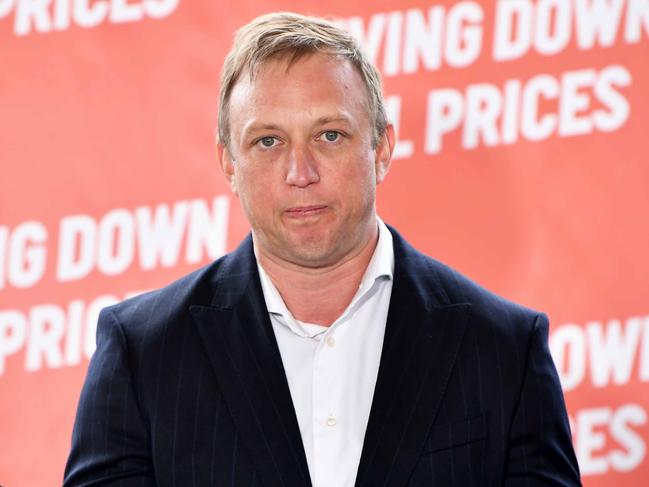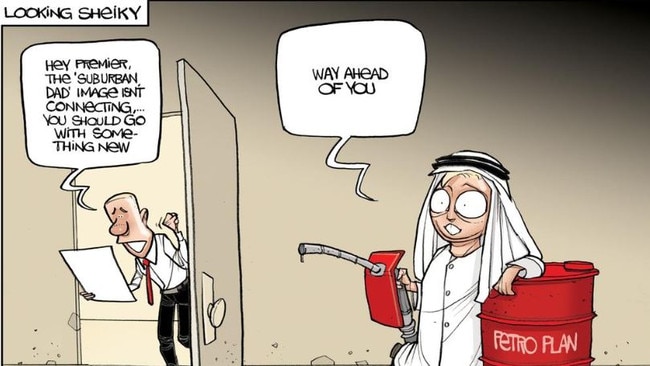Steven Miles defends proposed state-owned service stations
New detail has revealed just how many independent fuel retailers would be needed for Steven Miles to achieve his election promise of cutting fuel prices.
QLD News
Don't miss out on the headlines from QLD News. Followed categories will be added to My News.
At least 50 independent fuel retailers would need to set up shop in South East Queensland for Premier Steven Miles to achieve his election promise of cutting fuel prices by intervening in the market.
Mr Miles conceded that was a lot, and would take time to achieve, as he defended his promise to build state-owned service stations despite economists slamming the idea as crude, populist and bonkers.
Australia’s biggest business industry body also has added to the chorus of criticism, describing the promise as Soviet-era policy that would drive away investment and jobs from Queensland.
A re-elected Labor government would work to bring down the price of petrol by legislating fuel prices can’t go up by more than 5c a litre a day.
The government would also intervene to make it easier for small and independent retailers to enter the market by setting aside government-owned land and using overruling planning powers.
They would also build 12 state-owned fuel stations in areas where competition is most needed.
Mr Miles said there would always be those who agreed or disagreed with parts of policy.

But he said what had been put forward was the only comprehensive plan on the table to make fuel prices more stable.
“We believe that this entire package together will address that difference in the Queensland fuel market when compared to New South Wales and Victoria,” he said.
“We’d like to see those numbers more like Melbourne, so that represents roughly 50 more independent retailers across the south east.
“That’s a lot, and so it will take time to achieve that.”

Business Council of Australia chief executive Bran Black said the promise of state-owned petrol stations was “bad policy plain and simple”, with taxpayers to end up paying more.
“When a government announces this sort of Soviet-era policy it creates uncertainty and that will drive investment and jobs away from Queensland,” he said.
“Businesses looking to invest in Queensland will be thinking about which industry is next for government ownership and that means Queenslanders may miss out on opportunities.”
Analysis of Queensland’s service stations show the three biggest players – BP, Ampol and 7 Eleven – control 42.4 per cent of the market.
Independents, alongside much smaller operators which have 25 service stations or less across the state – like Reddy Express and Costco – make up about 16 per cent.
More Coverage
Originally published as Steven Miles defends proposed state-owned service stations





